We made our first foray into Paris this week – went in Monday morning and just returned (Wednesday afternoon). Paris is Paris; we’re always so glad to be back in the city.
One motivator for coming in this time is that the Fondacion le Corbusier gives a tour in English on Tuesdays, and we really wanted to be there for that. Since few people outside us architectural crazies know who Le Corbusier was, a few words…
Born Charles-Édouard Jeanneret in Switzerland in 1887, he took the professional name of le Corbusier in 1920; at that time it was common for professionals to take a pseudonym. Mostly, he wanted to be a painter and founded a school of painting he called Purism. Though he dedicated himself to Purism, only he and one other painter really adopted it, and for good reason: it isn’t very interesting.
But his ideas for buildings were interesting from the start. For some time, I was disdainful of le Corbusier for one reason: I read an article about his 1920s plan for Paris: he wanted to raze the city from the river north and build 40-story apartment buildings, with subterranean streets and lots of park areas. That idea of razing half the most beautiful city in the world rankled badly. Then…last trip we visited the Museum of Architecture in Paris (a not-well-known and wonderful museum) and in it is a apartment unit from a building le Corbusier designed and built for workmen in Marseille. It is simply a marvel. It is small, efficient and pleasing from any point-of-view in the apartment. As I have a biding interest in affordable housing, this fascinated me, and fortunately the museum had a number of other exhibits on Corbu. I bought a small book on him and started reading up.
After all this, I learned that the Fondacion le Cobusier, which is located in one half of a building he designed in the 16th Arrondissement of Paris, had just added an English-language tour one day a week. So, we were there for the tour last Tuesday. It was beautiful.
First, here’s a picture of a building built just a few years before Maison la Roche, the le Corbusier building we visited, was designed and constructed:

A house near le Corbusier’s Maison la Roche. Probably a close contemporary of Maison la Roche, built in the late 1880s or early 1900s. Maison la Roche was built 1923-1925.
Here’s the building we saw yesterday, designed and built between 1923 and 1925:
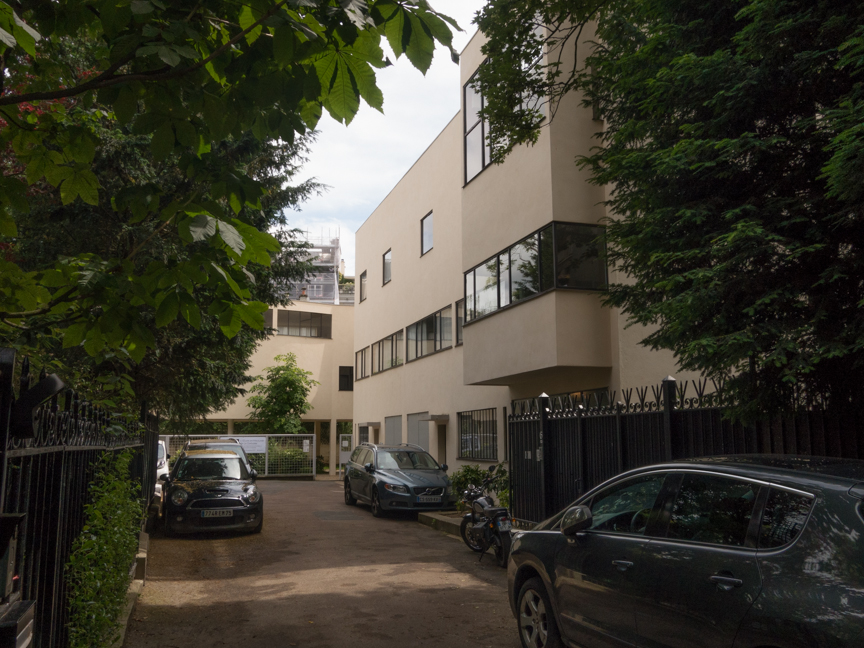
This is actually two living units, separated at where you see two garage doors. On the left was the home and exhibition rooms for Raoul Albert La Roche, a supporter of le Corbusier’s Purist movement (about the only supporter) and on the right the home of le Corbusier’s brother.
Do you notice a difference between Maison la Roche and the first building shown? Both are, in my (always) humble opinion, beautiful buildings, but in completely different ways.
One of Corbu’s architectural design philosophies was the architecture of a building should reveal itself to a person as he or she walked into and through a building. As we toured Maison La Roche, different views opened up and, for me, at least, every one of them was beautiful. It seemed to me that no matter where I looked, the spaces I saw were beautiful, of perfect form. Here are a couple pictures from Maison La Roche:
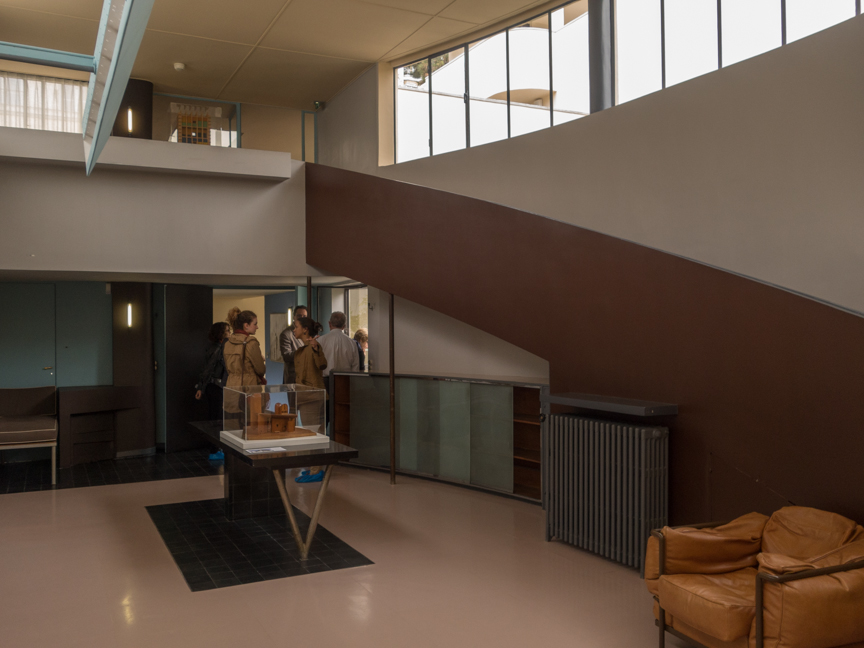
The exhibition room of M. La Roche’s house. Here he exhibited his collection of Picasso, Braque, Leger, Gris and Lipshitz paintings, as well as Purist paintings of le Corbusier and Ozenfant.
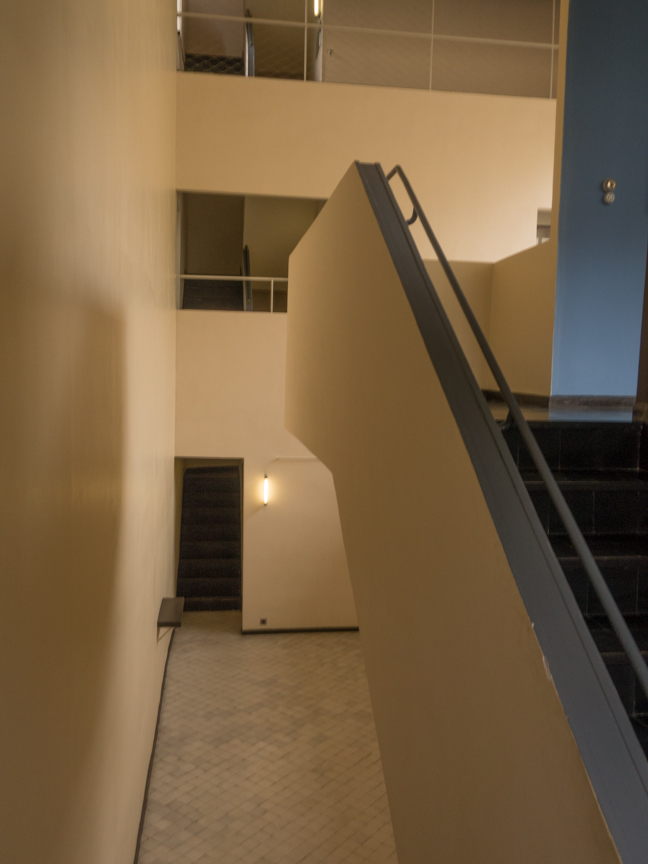
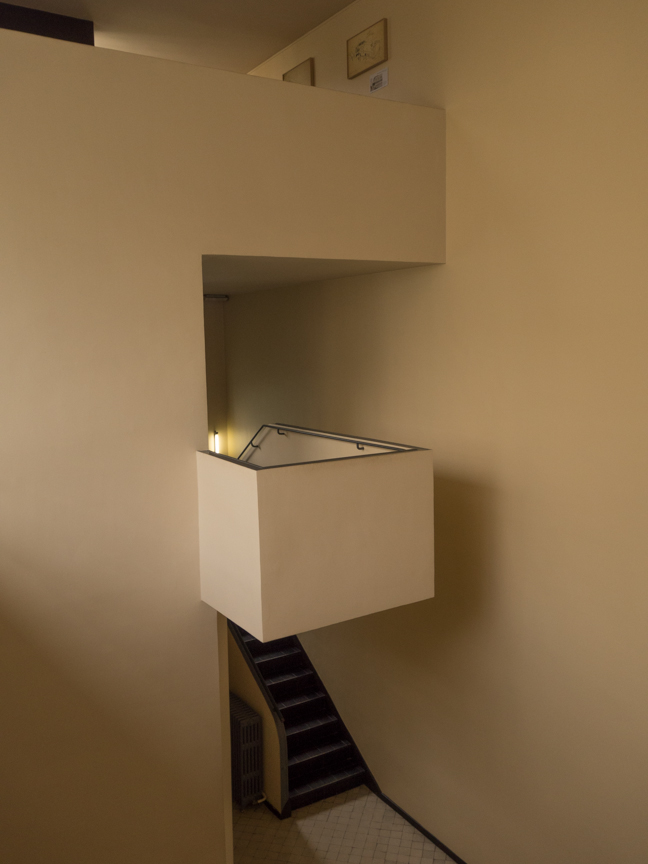
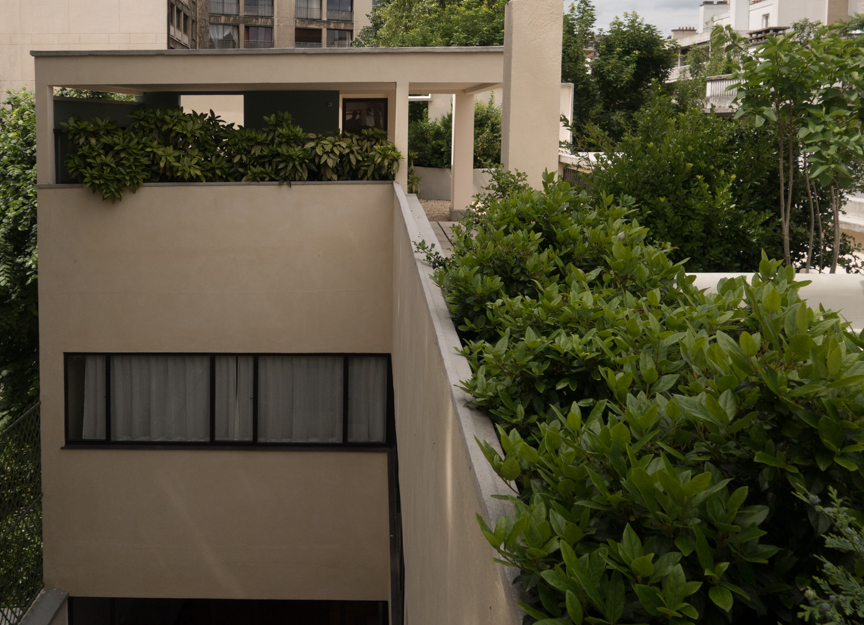 I haven’t made it clear that le Corbusier was likely the most influential architect of the twentieth century. The break you see between the first building and his style drove architecture into the Modern era, where it continues today. Now, not all buildings are as beautiful as his; I can easily find Parisian atrocities that evolved from Modernist architecture. But le Corbu surely was a visionary and the world is better for his vision (I think).
I haven’t made it clear that le Corbusier was likely the most influential architect of the twentieth century. The break you see between the first building and his style drove architecture into the Modern era, where it continues today. Now, not all buildings are as beautiful as his; I can easily find Parisian atrocities that evolved from Modernist architecture. But le Corbu surely was a visionary and the world is better for his vision (I think).
Okay, enough about le Corbusier. Suffice it to say that I’ve become a fan.
Now, to finish up the day and this post… We went to dinner with Mary and Gilles, where we met their son Eric, who we know well. Dinner was great, with excellent food and wine and conversation. When dessert time came, I ordered rice pudding because, well, I like rice pudding. It arrived in a humongous pot. The picture below is after I had eaten a rather large portion; the pot was completely filled when it arrive á table.
Now that’s what I call a rice pudding! Even with help from Mary and Laurie, I couldn’t eat more than a third of it. I want to point out, though, that it was fantastic; certainly one of the best rice puddings I’ve ever had. Unfortunately, “doggy bags” are a no-no in France, so I had to leave a lot of it. Can’t wait to go back, though; I’m skipping the first and second courses and going straight to the rice pudding.

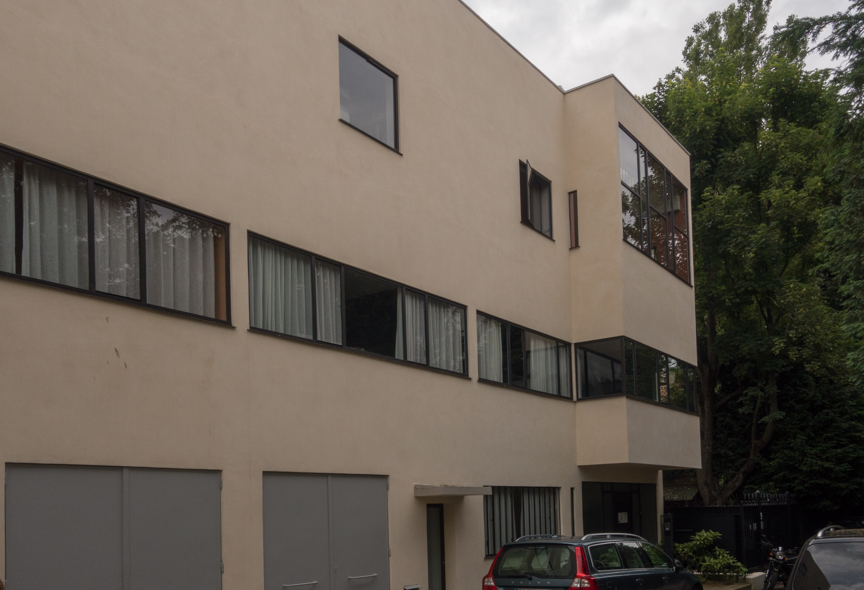


Unbelievable size of that pudding…looks so good too. I can’t imagine tossing so much food but I’ll bet that’s a common thing.
Love the Le Corbusier bldgs…clean, open lines/styles that tend to be some of my favorites.